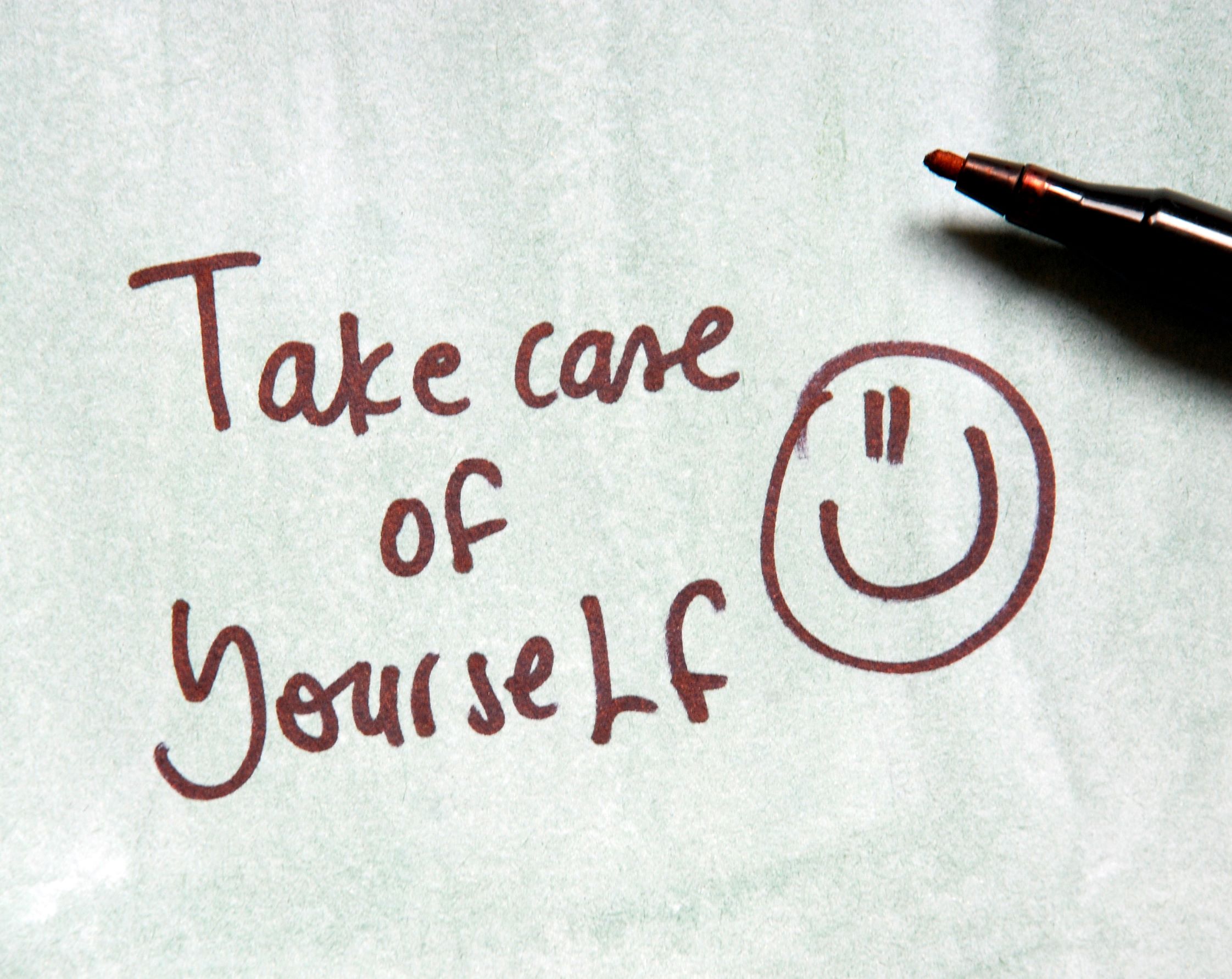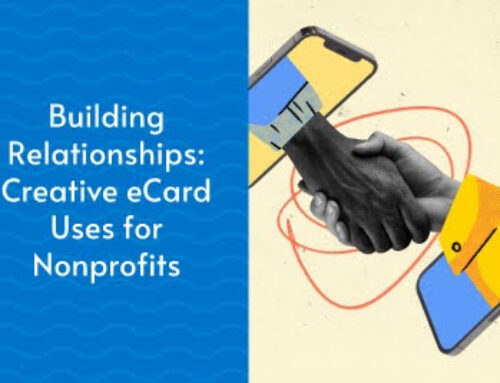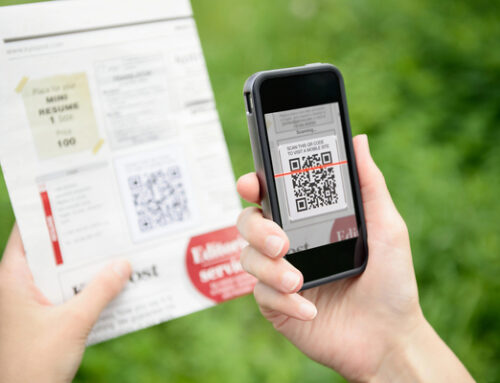 Fundraising burnout is real, and it’s killing too many small nonprofits.
Fundraising burnout is real, and it’s killing too many small nonprofits.
And what you’ll find at the core is a “do it all” syndrome.
Maybe you’re experiencing it now.
You’re juggling 50 balls at once.
You’re managing your organization, coordinating volunteers, handling all the marketing and fundraising tasks, making sure programs are running, and maybe even sweeping the floors.
It’s too familiar for most leaders of small organizations.
But what if you’re the ONLY person on the team, and there’s really no one else to help?
It’s easy to fall into that “I have to do it all” mentality.
And right behind that comes all the stress and worry.
You start working a little extra here and there, and pretty soon you’re working all the time – weeknights and weekends included. You have no boundaries, and you’re exhausted.
Well, let me invite you to take a few important minutes to think about why you need to change this, pronto!
You see, if you’re going to successfully lead your nonprofit to fulfill its mission and change lives, you MUST come first.
Yes, you read that right. YOU need to come first.
No, I haven’t forgotten who I’m talking to.
I KNOW you. I KNOW you usually come last, after your nonprofit work, your family, your volunteers/staff, your friends, and your neighbors.
I KNOW that you’re used to ignoring your own needs and putting yourself on the back burner.
And it’s time to cut it out!
Because whether you see it or not.. whether you admit it or not… whether you want to accept it or not… you’re headed for (or already in the midst of) burnout.
Avoiding Fundraising Burnout Starts With YOU!
Running a nonprofit isn’t easy, and it takes a lot of our time, heart, and brainpower.
It’s the nature of the business.
But it shouldn’t consume your life to the point that you have no life.
With suicide and addiction rates climbing in the nonprofit sector, it’s more important than ever to recognize when you’re doing too much and make changes to alleviate the overwhelm before it takes control.
Your cause needs you, your family and friends need you, and this world needs you.
Take care of yourself and keep yourself strong so that you can continue to do the wonderful work you’re doing.
It’s just part of being a good leader.
What Exactly is Fundraising Burnout?
 Dictionary.com defines “burnout” as physical or mental collapse caused by overwork or stress.
Dictionary.com defines “burnout” as physical or mental collapse caused by overwork or stress.
Read that again.
Physical or mental COLLAPSE. Not a stumble. Not a setback. A COLLAPSE.
Sounds serious.
And it is.
Many nonprofit leaders drive themselves to burnout and are never able to resume their previous workload.
It’s THAT serious.
There are many, many signs of fundraising burnout, but the most common ones are:
- Chronic fatigue
- Depression
- Lack of desire to get to work
- Lack of effectiveness (something that used to come easily to you is now a huge challenge)
- Anger or resentment towards your job or others
- Headaches, stomach aches, intestinal issues
- Being overly emotional
- Frequent illnesses
- Forgetfulness
- Insomnia
- Anxiety/panic attacks
- Loss of patience with the day-to-day functions of your job
Am I describing you?
If so, it’s REALLY important for you AND for your CAUSE that you work to create more balance.
You already know this, but I’ll remind you anyway: YOU are the face of your cause. YOU are the passion. Without YOU, your cause will fade away.
And YOU are SO passionate about your cause that you know it deserves better. YOU deserve better.
Another Face of Fundraising Burnout
As leaders in the nonprofit world, we’re all trying to fix something that’s broken. We’re trying to right a wrong or educate people about an injustice. We’re trying to help those who cannot help themselves or who the system forgot.
Seeing and hearing about all of these injustices on a daily basis can cause compassion fatigue.
According to the Compassion Fatigue Awareness Project, “Compassion fatigue is a state experienced by those helping people or animals in distress; it is an extreme state of tension and preoccupation with the suffering of those being helped to the degree that it can create a secondary traumatic stress for the helper.”
You see, caring too much can hurt you.
When caregivers focus on others without practicing self-care, destructive behaviors can surface. Apathy, isolation, bottled-up emotions, and substance abuse are part of a long list of the negative effects of compassion fatigue.
So not only are we dealing with the danger of burnout like every other profession, but as nonprofit leaders, we also must battle compassion fatigue.
How to Avoid Fundraising Burnout
The best way to stay clear of fundraising burnout and compassion fatigue is to maintain balance in your life so you can stay in front of them and prevent them from occurring in the first place.
I know – it’s easier said than done! But it’s so very important.
Leaving these conditions untended can lead to long-term depression, loss of relationships, and even suicide.
How can you avoid falling into the burnout trap?
 It’s deceptively simple: self-care.
It’s deceptively simple: self-care.
Yes, you may be rolling your eyes just like any “do-it-all” nonprofit leader would.
But bear with me here.
The MOST SUCCESSFUL LEADERS in business and nonprofit understand the value of self-care and have achieved some sort of work/life balance.
They have a personal success plan for themselves and they work it.
Self-care doesn’t have to be a big intensive undertaking!
Here are some really simple ideas to keep you grounded and balanced:
If, despite your best efforts, you’re still struggling with burnout or compassion fatigue, you may want to consider seeking help from a professional life coach or therapist to help you sort through your priorities and your tasks.
What if You’re Already Burning Out or Burned Out?

All of the prevention tips in the world aren’t going to help you if you’re already sizzling and crispy around the edges.
If that’s where you are, we need to dig you out right now.
For starters, if you’re burning out, it’s important to let people know this.
You CANNOT take on more tasks. In fact, you NEED to say NO to some things you’re already doing.
And you need to seek help.
You need to communicate with your team and tell them you are overwhelmed. And then you need to DELEGATE.
There are COUNTLESS tasks that you are probably doing that don’t require your personal touch. Find those tasks and outsource them STAT. Here are some relatively easy things to delegate:
- General errands. Send someone else to pick up the mail, drop off a deposit at the bank, or pick up toilet paper for the office.
- Researching. Finding event venues, searching for grant opportunities, and anything else where it’s simply gathering info.
- Sourcing items for giveaways, auctions, raffles. Someone else can call area businesses to ask for gift cards.
- Picking up in-kind or monetary donations. Someone else can pick up those 3 boxes of supplies or that $50 from the local church.
- Ordering supplies. Let someone else get on Office Depot’s website to order paper.
- Comparing internet plans or printing costs. Someone else can do this for you.
- Managing social media. Someone else DEFINITELY can do this for you!
- Responding to general inquiries about your nonprofit’s services. See if there’s a way to automate this online.
- Coordinating volunteers. Find a volunteer to coordinate volunteers so you don’t have to.
- Updating your website. Find a college student to do this for you.
- Getting mailers out the door. Volunteers can stuff envelopes.
- Creating/Editing graphics or video. Someone else can do this for you.
- Data entry — either in QuickBooks or your donor database. The right volunteer will be awesome at this!
Delegation isn’t always easy and requires a shift in your mindset.
Not everything will get done the way YOU want it done, but if the task is getting done and it meets your minimum standard of quality, it’s fine.
If you’re already toast and all the way burned out, you need to take a break.
Whether that break is one weekend, one week, or one month, you need to step away and take care of your mental and physical health. Time away can do you a world of good!
And while you’re on your break, NO THINKING ABOUT WORK STUFF!! No calls, no texts, no emails.
Get those around you that you love and trust to help you with those breaks. Ask them to remind you that you’re working too much or that you’re on your phone when you shouldn’t be. The people who love you will happily help you regain your life.
If your burnout is bad enough, speak with a therapist or your family doctor and get some medication to help you find your balance, if that’s right for you.
I know of people who have suffered such serious burnout that they never recovered. They were never quite the same person they were before.
Some of them have outright walked away from the nonprofit world.
Others resigned or stepped down to let someone else take the reins.
And still others lost their lives. They gave up because they couldn’t escape the pain and pressure any longer.
Watch for Burnout Among Team Members
Your staff or key team members can experience burnout, too.
As the leader, it’s really important that you stay in tune with your key team members and make sure you aren’t letting them take on too much.
 EVERY volunteer is gung-ho in the beginning, and it’s VERY easy for passionate people to take on more than they can handle long term.
EVERY volunteer is gung-ho in the beginning, and it’s VERY easy for passionate people to take on more than they can handle long term.
DON’T let that happen.
Take care of your team by making sure that no one person has more workload than is reasonable. Make sure that you aren’t overwhelming them with delegated tasks just because they’re willing to work.
It’s exciting for us to have these eager volunteers who are ready to take on the world! But if you’re not careful, they’ll burn out too. And if they burn out – and you’ve put all your eggs in that basket – the cycle starts all over again.
The Bottom Line
Fundraising burnout is real, and it affects thousands of people across the globe.
It’s a growing problem in the nonprofit world, especially for small organizations where people are overworked, understaffed, and dealing with problems that are emotionally taxing.
As a leader, you need to make sure you’re taking time to feed your soul and recharge your batteries (two of the best defenses against burnout).
If you work all the time, you put both yourself and your organization at risk.
Make time to do the things you enjoy that have NOTHING to do with your work.
Taking care of yourself physically AND emotionally will leave you better able to lead your nonprofit in fulfilling its mission.
And you’ll have a lot more fun doing it.







Leave A Comment